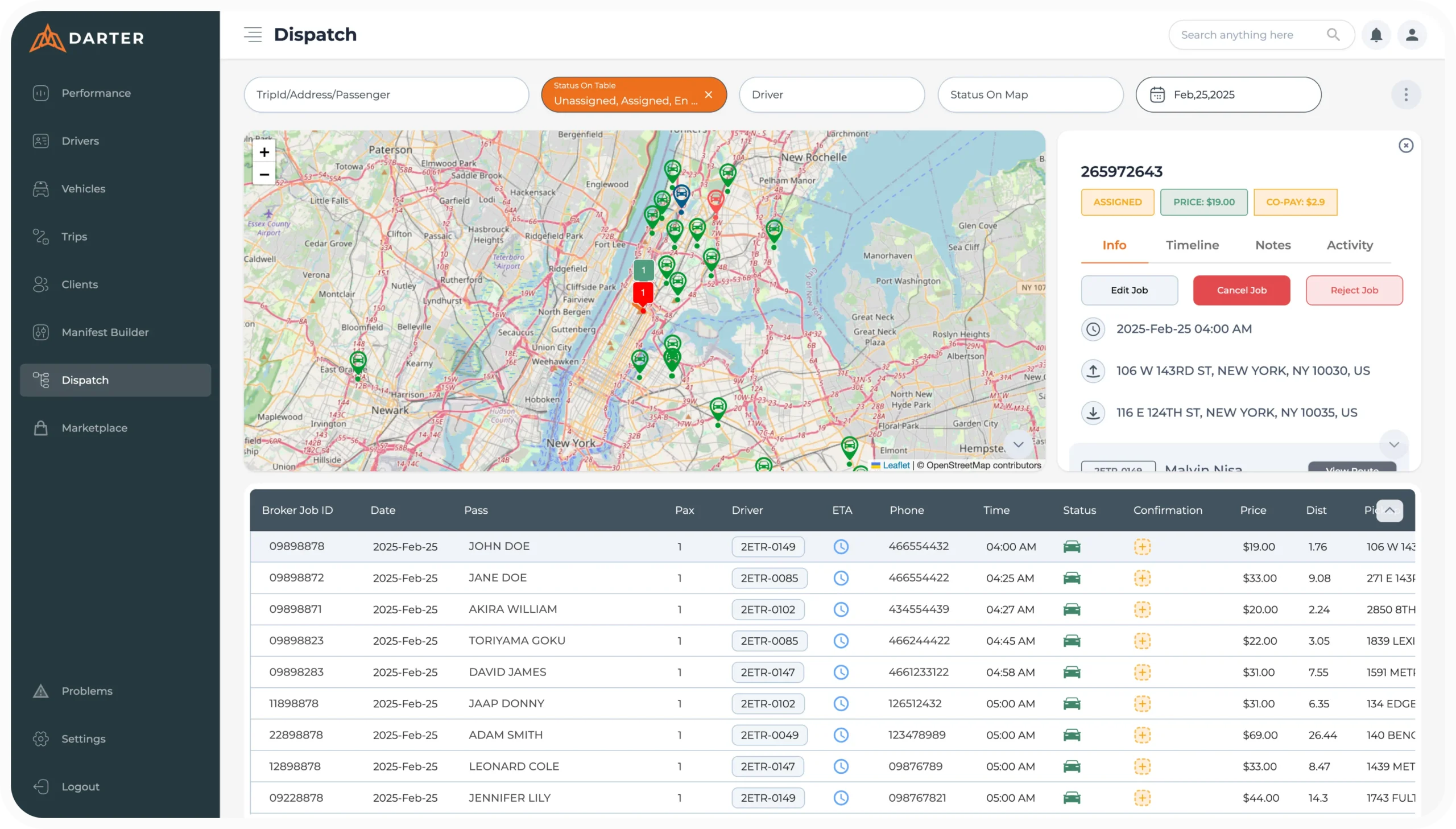The transportation industry is undergoing a massive transformation. The days of manual dispatching, outdated fleet tracking, and inefficient route planning are quickly fading. In their place, technology-driven solutions are streamlining operations, improving efficiency, and creating smarter, more responsive fleets.

Fleet operators, brokers, and transportation companies are increasingly turning to automation, AI-powered analytics, and cloud-based platforms to stay competitive. In cities like New York, Boston, and Philadelphia, where demand for transportation services fluctuates daily, real-time data and automated decision-making have become essential tools for managing fleets at scale.
The shift toward smart transportation management is more than a trend—it’s a necessity for businesses looking to remain efficient and profitable. From route optimization to predictive analytics, technology is redefining every aspect of fleet operations.
The Growing Role of AI and Automation in Fleet Operations
For years, fleet management relied on manual coordination, dispatcher intuition, and static route planning. While this approach worked in smaller, more predictable environments, it struggled to scale as demand grew. Today, AI-powered software is revolutionizing transportation by eliminating inefficiencies that previously led to unnecessary costs and delays.
Automated dispatching allows transportation companies to allocate trips instantly, reducing downtime and ensuring vehicles are always moving. AI-driven routing software analyzes real-time traffic data, weather conditions, and trip history to create the most efficient travel paths, saving fuel and reducing overall trip durations. These advancements are not just improving operations but also enabling businesses to handle more trips without increasing fleet size or administrative overhead.
Technology is also transforming fleet monitoring. With GPS tracking and cloud-based analytics, managers can monitor vehicles in real time, ensuring every trip is executed as efficiently as possible. Instead of waiting for daily reports, fleet operators now have instant access to performance insights, helping them adjust strategies on the fly and make data-backed decisions that improve service reliability.
Data-Driven Decision Making for Greater Efficiency
Fleet management is no longer just about getting from point A to point B. The most successful transportation companies are leveraging data to optimize every aspect of their operations. By analyzing past trip performance, traffic patterns, and driver behavior, fleet managers can identify inefficiencies and refine their strategies.
Predictive analytics plays a key role in this shift. Instead of reacting to delays and inefficiencies, fleet operators can anticipate potential disruptions before they occur. AI-powered software can predict fuel consumption trends, highlight underutilized vehicles, and recommend scheduling adjustments to maximize fleet performance. With the ability to analyze thousands of data points in real time, businesses can make smarter decisions that lead to cost savings and improved service levels.
For brokers coordinating transportation across multiple providers, these insights are invaluable. Having access to data-driven reports allows them to track service reliability, optimize partnerships, and ensure that every trip is completed on time. The ability to measure and improve operational performance is transforming how transportation providers compete in an increasingly data-driven marketplace.
The Competitive Edge of Smart Fleet Management
As more businesses adopt AI-powered solutions and real-time analytics, those still relying on traditional methods risk falling behind. The competitive landscape is shifting toward transportation providers that can deliver efficient, cost-effective, and highly reliable services.
Automation is not just about reducing costs—it’s about increasing capacity without increasing workload. AI-powered dispatching ensures fleets can handle more trips with fewer delays, while optimized routing reduces unnecessary mileage and fuel expenses. These improvements translate into better service, higher profits, and a more scalable business model.
In major transportation hubs, the demand for fast, reliable fleet services is greater than ever. Urban areas like New York, Boston, and Philadelphia require precision in fleet management to handle unpredictable traffic, last-minute trip changes, and fluctuating passenger needs. Companies that embrace automation and data-driven decision-making are well-positioned to meet these challenges and outpace competitors still relying on outdated systems.
A Future Built on Technology and Efficiency
The transportation industry is moving into a new era of efficiency, scalability, and intelligence. Technology is no longer a luxury for fleet operators—it’s the foundation for success. Businesses that integrate AI-powered dispatching, automated routing, and real-time analytics into their operations will not only survive in this evolving market but thrive.
The shift is already happening, and those who fail to adapt will struggle to compete. Smarter fleet management is about leveraging technology to maximize efficiency, reduce operational costs, and provide reliable service at scale.
Darter’s fleet management platform is designed to help transportation providers harness the power of automation and real-time data insights. By eliminating inefficiencies and optimizing every aspect of fleet operations, businesses can scale with confidence and stay ahead in an industry that continues to evolve.

